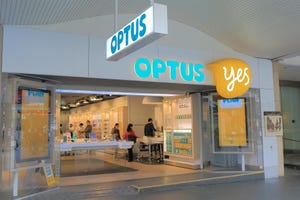
Based on its view of the market, Xilinx said the ongoing pandemic isn't affecting operator demand for 5G equipment, but it might slow down some 5G rollouts.
"I think it's really delay as opposed to the demand disruption," CEO Victor Peng said of COVID-19 during his company's quarterly conference call with analysts this week, according to a Seeking Alpha transcript of his remarks.
Xilinx's 5G outlook dovetails generally with comments from 5G equipment vendor Ericsson, which said this week it has seen "no material effects on our demand situation" due to the coronavirus.
Peng added that Xilinx, which makes 5G silicon for 5G basestations, still believes 5G represents a $1 billion business for the company, even after the US government essentially killed its sales to Huawei.
That figure "gives you an idea of that even in the early innings of 5G, this is strong for us," Peng said of Xilinx's overall 5G opportunity, sans Huawei. "I think when we get through some of these kind of near term headwinds and uncertainty, it's definitely still going to be a very significant opportunity for us."
The comments from Peng are noteworthy considering Xilinx sells the silicon that powers 5G basestations from some of the world's biggest equipment suppliers. Indeed, Xilinx just this month announced Samsung will use its Versal adaptive compute acceleration platform (ACAP) in its 5G products.
Moreover, his 5G outlook stands in contrast to the company's warning in early February that it would cut 7% of its workforce partly due to an unexpected slowdown in its 5G business. That warning, before the worldwide spread of COVID-19, certainly soured investors on Xilinx's prospects, but the company's stock has been slowly recovering over the past few months, despite the pandemic.
In fact, Peng this week promised "there will be no workforce reductions during the rest of this calendar year."
Xilinx competes with the likes of Broadcom, HiSilicon, Marvell, Qualcomm, Intel and others in selling silicon to 5G equipment suppliers. The company also sells its chips to other markets including aerospace and defense, data center and automotive (the company's "wired and wireless division" currently accounts for 31% of revenues).
Xilinx reported revenues of $3.16 billion for its full fiscal year, up 3% from the prior period. The company posted fiscal fourth quarter revenues of $756 million, down 9% year-over-year.
— Mike Dano, Editorial Director, 5G & Mobile Strategies, Light Reading | @mikeddano
About the Author(s)
You May Also Like












